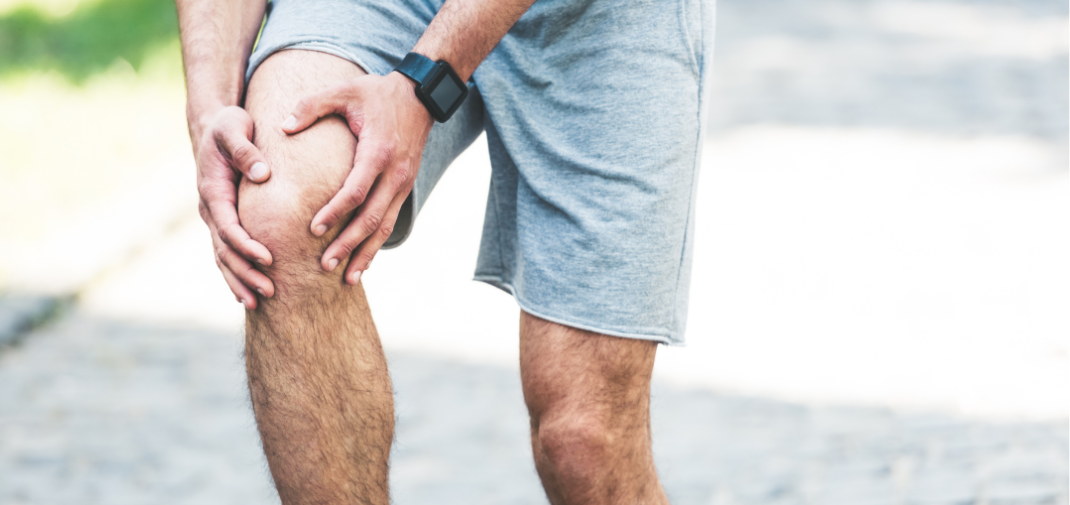
Knee pain is a common issue that affects people of all ages, from young athletes to older adults. Whether it’s caused by age-related wear and tear, an injury, or other medical conditions, knee pain can significantly affect your daily life and mobility. In Ayurveda, knee health is linked to maintaining the balance of the body's three doshas – Vata, Pitta, and Kapha. Through Ayurvedic remedies and exercises, you can not only relieve pain but also improve flexibility and strength.
Understanding the Causes of Knee Pain
The knee joint is one of the most complex joints in the body, responsible for bearing weight and facilitating movement. When this joint faces issues, it often results in pain, discomfort, and reduced mobility. Here are some common causes of knee pain:
Osteoarthritis: This age-related condition causes the cartilage in the knee joint to wear away, leading to pain, swelling, and stiffness.
Injuries: Knee injuries like ligament tears, fractures, or meniscus tears can cause significant pain and swelling.
Bursitis: Inflammation of the small sacs of fluid around the knee joint can lead to pain and swelling, making movement difficult.
Rheumatoid Arthritis: This autoimmune disease causes inflammation in the joints, including the knees, leading to pain and stiffness.
Overuse or Poor Posture: Incorrect posture, improper footwear, or repetitive movements can strain the knees over time.
How Ayurveda Addresses Knee Pain
Ayurveda emphasizes holistic healing by balancing the three doshas—Vata, Pitta, and Kapha. Knee pain is often associated with an imbalance in Vata dosha, which governs movement and flexibility. When Vata becomes aggravated, it can lead to dry, stiff joints and pain. Ayurveda offers natural remedies and practices that help restore balance to the body, reduce inflammation, and improve joint function.
Key Ayurvedic Herbs for Knee Health:
Ashwagandha: Known for its anti-inflammatory and pain-relieving properties, ashwagandha strengthens muscles and joints.
Turmeric: Containing curcumin, turmeric has powerful anti-inflammatory effects that can help reduce joint pain and swelling.
Ginger: This herb can be used in both topical and oral forms to relieve joint inflammation and improve mobility.
Guggul: A traditional Ayurvedic herb that helps reduce inflammation and repair cartilage in joints.
Top Ayurvedic Exercises to Strengthen the Knee Joint
Incorporating regular exercise into your routine can help improve knee function and alleviate pain. Ayurveda emphasizes exercises that improve flexibility, blood circulation, and the health of the joint. Here are some Ayurvedic exercises that can help:
Vrikshasana (Tree Pose)
This yoga pose is great for strengthening the knee joint and improving balance. It helps stretch the hips, knees, and ankles, reducing the stiffness that often comes with knee pain.
Virabhadrasana (Warrior Pose)
The Warrior Pose strengthens the muscles around the knee joint, providing support and stability. It also improves flexibility and alignment, which can prevent future knee issues.
Trikonasana (Triangle Pose)
This stretching pose works on the hamstrings, hips, and knees, relieving tension and improving flexibility. It’s a great way to reduce stiffness and strengthen the surrounding muscles.
Leg Raises
Simple leg raises can help strengthen the quadriceps, which are important for knee health. By improving the strength of the muscles that support the knee joint, leg raises can reduce the pressure on the joint itself.
Ankle Pumps
Ankle pumps involve gently moving the foot up and down, stimulating circulation in the lower legs and reducing stiffness. This exercise is particularly helpful for those who experience swelling in the knee joint.
Gentle Squats
Squats are excellent for strengthening the muscles surrounding the knee. Start with low-impact squats and gradually increase the intensity as your knees become stronger.
When to Avoid Certain Exercises
While exercises are vital for strengthening the knee joint, some movements may aggravate existing conditions, such as arthritis or injuries. Here’s when to avoid certain activities:
High-Impact Activities: Running, jumping, or intense sports may worsen inflammation and pain.
Deep Knee Bends: Full squats or deep lunges can put undue strain on already weakened knees.
Twisting Movements: Movements that involve a twisting action (e.g., twisting your knee during a turn) can stress ligaments and tendons in the knee.
If you have a pre-existing knee condition or injury, consult with a healthcare professional or Ayurvedic expert before beginning a new exercise routine.
Diet and Lifestyle Tips for Joint Health
Along with regular exercise, adopting a healthy diet and lifestyle can support knee health. Here are some Ayurvedic dietary tips for joint health:
Eat Anti-Inflammatory Foods: Foods like turmeric, ginger, garlic, and leafy greens help reduce inflammation and promote joint health.
Hydrate Well: Drinking plenty of water helps lubricate the joints and supports cartilage health.
Avoid Processed Foods: Limit processed and sugary foods, which can contribute to inflammation and joint degeneration.
Conclusion
Knee joint health is essential for mobility and overall well-being. Ayurveda offers a holistic approach that focuses on balancing the body's energy through natural remedies, herbs, and exercises. By understanding the causes of knee pain and adopting Ayurvedic exercises and lifestyle habits, you can strengthen your knees, alleviate pain, and improve flexibility naturally.
Remember, consistency is key when it comes to Ayurvedic practices. Along with strengthening exercises, maintaining a healthy diet, and using the right herbs, you can enjoy long-term relief from knee pain and improve the overall health of your joints. Always consult with a healthcare provider before starting any new exercise or treatment program to ensure it’s safe and effective for your specific needs.
First Floor, Somanathapuram, Door No 4, 11B, Paper Mills Road, near Square Brothers Xerox, Kolathur, Tamil Nadu 600099.
First Floor, 241, Poonamallee High Rd, Maduravoyal, Chennai, Tamil Nadu 600095.
No. 63, HIG1, Ground Floor, Mogappair West Main Road, Nolambur, Chennai, Tamil Nadu 600037.

Copyrights All Rights Reserved Dr. Raniya Sulthana Ayurveda Multispeciality Clinic | Website Designed & Developed By GlintCreatives.com